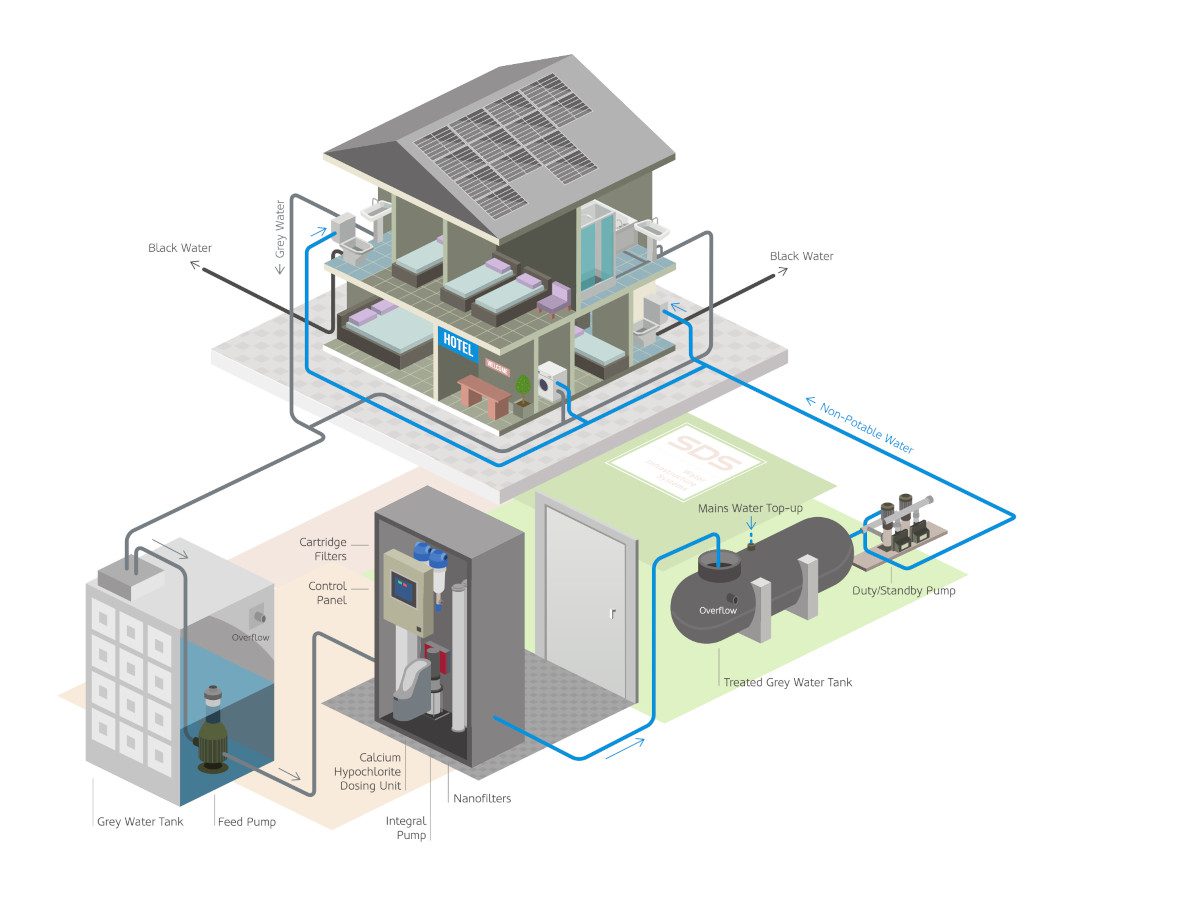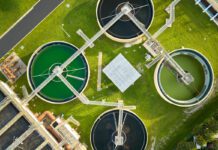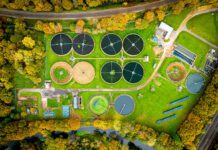
Water reuse technology specialist SDS has launched a grey water treatment system that it says makes it simpler and more cost-effective for developments, such as smaller hotels, residential and commercial buildings, to operate low-maintenance grey water recycling. The all-in-one, pre-fabricated, skid-mounted system also “provides an opportunity for easy retrofitting into existing buildings where space is at a premium”.
As a fully automated, on-demand, rapid treatment system, SDS’s smaller scale grey water recycling (GWR) system is especially suitable for buildings with lower usage, for example hotels with between 50 and 150 bedrooms. Its first installation has been completed at the new 84-bed Premier Inn development in Faversham, Kent.
SDS says it offers attractive investment pay-backs for smaller installations, while also providing “an opportunity for previous adopters of MBR (Membrane Bioreactor) grey water technology to switch to lower maintenance and more adaptable systems”. MBR systems require a constant supply of grey water to remain effective and take a longer time, therefore, to reach full efficiency after shutdown; the on-demand treatment principle used by SDS, however, treats grey water at higher speeds and allows for fluctuations in demand and for the system to be shut down when not in use, for example during holiday periods, and easily restarted.
SDS’s Water Reuse Manager, Sam Burgess, said: “SDS were keen to develop a new UK-manufactured technology that could open up grey water reuse to smaller buildings which would not otherwise be able to produce enough grey water from wash hand basins and showers to enable a treatment system to operate successfully, or cost-effectively.
“We are also encountering operators who are frustrated with the sensitivity of MBR systems, together with their more onerous cleaning and maintenance regimes. Some have even shut them down permanently, especially after having been faced with ‘on/off’ operating conditions encountered during the Covid pandemic.
“We are excited by the prospect of offering this UK-manufactured small scale GWR technology, which is quick to install and commission, even in existing buildings, and can offer attractive savings on mains water demand. We believe a well-designed SDS GWR system could achieve investment payback in under ten years, with the plant capable of a design life at least three times that long.”
High-quality treated water
The SDS pre-fabricated treatment system measures 800mm wide x 600mm deep x 1,800mm high, making it capable of fitting through doorways. With a maximum production flow of up to 1m3 per hour, it supplies treated water primarily for the purpose of toilet flushing. The two-stage treatment process uses cartridge filters followed by nanofiltration; both stages incorporate automatic backwash self-cleaning to ensure a consistently high level of water quality.
The system has been developed to use intelligent chlorine dosing using dry block calcium hypochlorite, allowing for easier servicing and storage than liquid chlorine dosing systems that require more onerous Health and Safety handling regimes.
Along with the packaged treatment plant, SDS can supply and install the complete system, including pumped distribution. Both the grey water and treated water tanks can be installed above- or below-ground as required. A back-up mains water supply in the treated water tank ensures seamless water delivery at all times.
The system is designed for minimal maintenance, with accurate information provided on grey water production, mains water usage and savings via the plant room control HMI screen, as well as via remote interrogation. In addition, the system can be Internet-of-Things-enabled to provide, via a SDS SYMBiotIC® cloud-based client dashboard, recording and historic analysis of more detailed operating data and reports.
SDS’s smaller scale grey water recycling system complies with BS8525 requirements and conforms with Water Supplies (Water fittings) Regulations, when partnered with SDS-supplied tanks. It complements the company’s system for larger buildings, introduced in early 2021.







